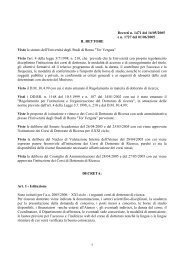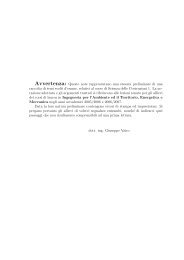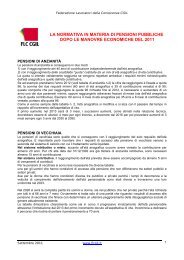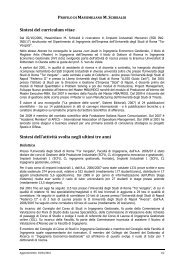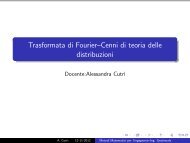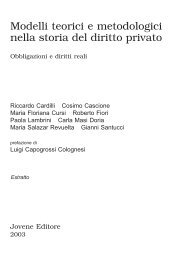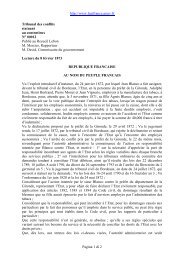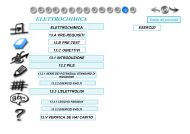Lecture 3.1: Handling Remote Access: RADIUS Motivation
Lecture 3.1: Handling Remote Access: RADIUS Motivation
Lecture 3.1: Handling Remote Access: RADIUS Motivation
You also want an ePaper? Increase the reach of your titles
YUMPU automatically turns print PDFs into web optimized ePapers that Google loves.
Attack to shared secret based on<br />
User-Password<br />
User Password attribute<br />
XOR (password)<br />
Arbitrary User-ID<br />
Arbitrary Password (< 16 bytes)<br />
Giuseppe Bianchi<br />
NAS<br />
<strong>Access</strong>-Request<br />
User-Password attribute (16 bytes)<br />
Request Authenticator (16 bytes)<br />
MD5(secret, RequestAuth)<br />
<strong>RADIUS</strong> server<br />
Attack to the shared secret based on the<br />
User-Password attribute<br />
Exhaustive search attack<br />
But pre-computation of MD5 state not possible here, as<br />
secret is first<br />
Offline dictionary attacks<br />
Their “effectiveness” depends on chosen<br />
secret<br />
(Often ignored) advice from RFC 2865:<br />
“The secret (password shared between the client and the<br />
<strong>RADIUS</strong> server) SHOULD be at least as large and<br />
unguessable as a well-chosen password. It is preferred that the<br />
secret be at least 16 octets. This is to ensure a sufficiently<br />
large range for the secret to provide protection against<br />
exhaustive search attacks. The secret MUST NOT be empty<br />
(length 0) since this would allow packets to be trivially<br />
forged.”<br />
Many implementations only allow shared-secrets that are<br />
ASCII characters, and less than 16 characters;<br />
resulting <strong>RADIUS</strong> shared secrets are low entropy!<br />
Giuseppe Bianchi<br />
17




